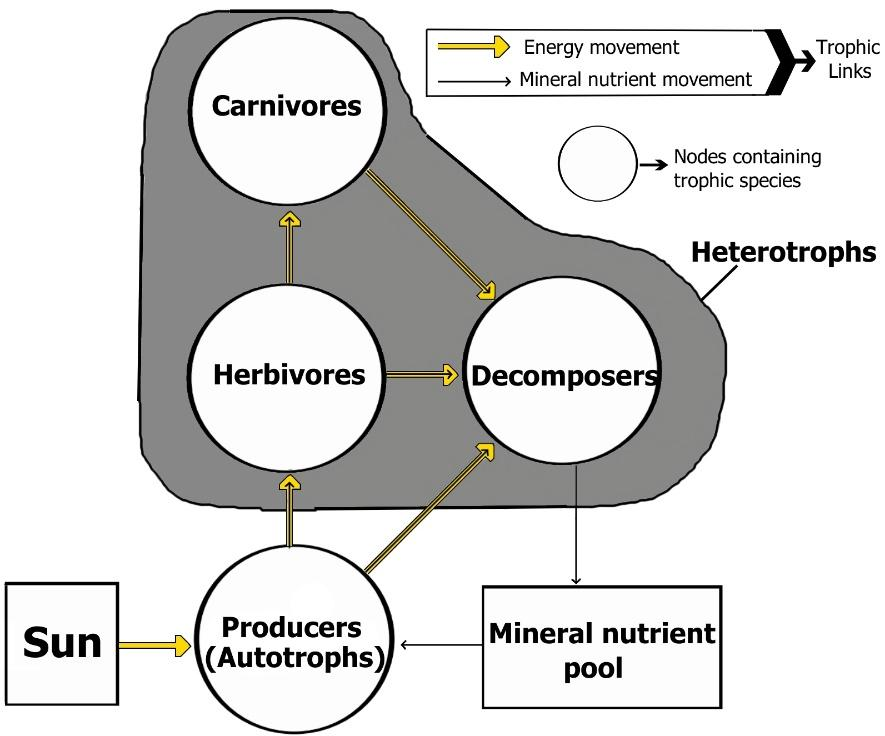
What causes the decomposition of organic matter in soil?
A. Insects
B. Plants
C. Algae
D. Bacteria
Answer
592.2k+ views
Hint: A decomposer is essentially an organism that breaks down organic material such as the remains of dead and decaying animals and plants and other organisms in the ecosystem. These organisms include fungi and the group of tiny organisms that lack the nucleus (prokaryotic organisms).
Complete answer: The fungi and bacteria which are the primary decomposers survive by obtaining nutrition from the dead and decaying substances.
Decomposers are heterotrophic, which suggests they get their energy from ingesting organic material.
A dead organism provides nutrients for decomposers like bacteria and fungi to use so as to grow and reproduce, propagating their own species.
When an organism dies and decomposers perform decomposition, the organism’s remains undergo five stages of decomposition: fresh, bloat, active decay, advanced decay, and dry/remains processes.
Autolysis is when cellular enzymes within the dead organism’s own body break down cells and tissues, while putrefaction is when microbes grow and reproduce throughout the body after death.

So, the correct answer is option D. Bacteria.
Note: The decomposers serve an important role in an ecosystem. They ensure the constant nutrient cycling in the ecosystem by replenishing the nutrients stored in organisms of higher trophic levels. Without decomposers, dead organisms wouldn't be weakened and recycled into other living matter.
Complete answer: The fungi and bacteria which are the primary decomposers survive by obtaining nutrition from the dead and decaying substances.
Decomposers are heterotrophic, which suggests they get their energy from ingesting organic material.
A dead organism provides nutrients for decomposers like bacteria and fungi to use so as to grow and reproduce, propagating their own species.
When an organism dies and decomposers perform decomposition, the organism’s remains undergo five stages of decomposition: fresh, bloat, active decay, advanced decay, and dry/remains processes.
Autolysis is when cellular enzymes within the dead organism’s own body break down cells and tissues, while putrefaction is when microbes grow and reproduce throughout the body after death.

So, the correct answer is option D. Bacteria.
Note: The decomposers serve an important role in an ecosystem. They ensure the constant nutrient cycling in the ecosystem by replenishing the nutrients stored in organisms of higher trophic levels. Without decomposers, dead organisms wouldn't be weakened and recycled into other living matter.
Recently Updated Pages
Master Class 12 Economics: Engaging Questions & Answers for Success

Master Class 12 Physics: Engaging Questions & Answers for Success

Master Class 12 English: Engaging Questions & Answers for Success

Master Class 12 Social Science: Engaging Questions & Answers for Success

Master Class 12 Maths: Engaging Questions & Answers for Success

Master Class 12 Business Studies: Engaging Questions & Answers for Success

Trending doubts
Which are the Top 10 Largest Countries of the World?

What are the major means of transport Explain each class 12 social science CBSE

Draw a labelled sketch of the human eye class 12 physics CBSE

What is a transformer Explain the principle construction class 12 physics CBSE

Why cannot DNA pass through cell membranes class 12 biology CBSE

Differentiate between insitu conservation and exsitu class 12 biology CBSE




